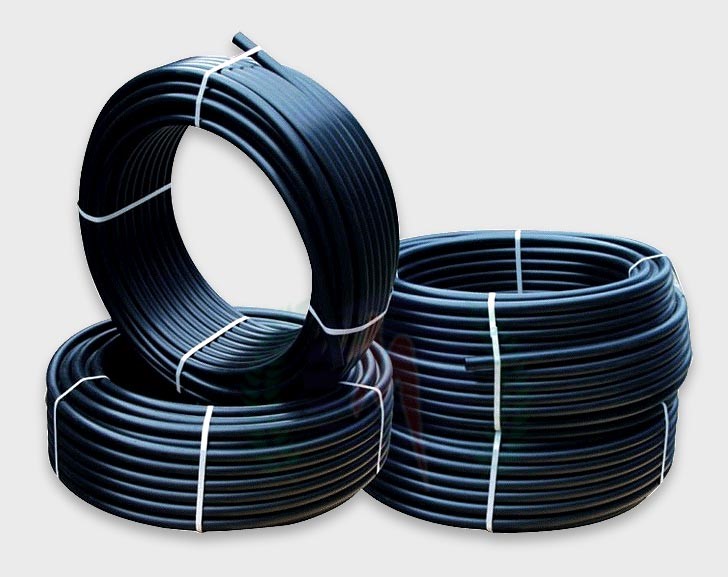Things to Know About Texas hdpe pipe manufacturer and What They Offer
Wiki Article
Understanding the Secret Perks of HDPE Pipeline for Water and Wastewater Administration
Using HDPE pipeline in water and wastewater administration provides many benefits that warrant factor to consider. Its exceptional sturdiness and long life expectancy make it a favored choice for numerous jobs. In addition, the material's resistance to rust and chemical damage enhances its integrity in numerous settings. Nevertheless, the benefits extend past just longevity and resistance. Exploring its cost-effectiveness and environmental effect reveals a lot more engaging factors for its widespread fostering in modern-day facilitiesPhenomenal Sturdiness and Longevity

HDPE pipe stands apart for its exceptional toughness and durability, making it a preferred selection in water management systems. Built from high-density polyethylene, these pipes can stand up to substantial pressure and anxiety, guaranteeing dependable efficiency over time. Their durable nature permits them to endure extreme ecological conditions, including temperature level fluctuations and soil motions, which can trigger various other materials to stop working.
The life-span of HDPE pipes typically goes beyond 50 years, providing an economical remedy for towns and markets alike. In addition, the product's light-weight buildings streamline installation, decreasing labor prices and durations. This durability reduces the requirement for regular fixings or substitutes, better enhancing its economic appeal.
In water management applications, the reliability of HDPE pipes implies fewer interruptions and improved service continuity, making them essential to sustainable infrastructure growth. The mix of resilience and longevity solidifies HDPE's function as a keystone in effective water administration solutions.

Resistance to Rust and Chemical Damages
While numerous materials catch rust and chemical damages gradually, HDPE pipes show amazing resistance, making them ideal for various water management applications. This resilience stems from the molecular framework of high-density polyethylene, which is naturally non-reactive and does not wear away like steels or break down from direct exposure to extreme chemicals. Therefore, HDPE is extremely efficient in atmospheres with aggressive substances, such as wastewater systems that may include acids, bases, and organic solvents.
Additionally, HDPE pipelines can withstand ecological aspects such as dirt acidity and saline conditions, better enhancing their suitability for varied applications (American Plastics HDPE Pipe for Oilfield). Their capability to preserve structural honesty with time minimizes the risk of leaks and failings, which is important in making sure the safety and integrity of water distribution and wastewater management systems. Subsequently, the resistance to rust and chemical damages substantially adds to the total efficiency and long life of HDPE piping remedies
Cost-Effectiveness and Economic Advantages
When considering the monetary implications of water administration systems, the cost-effectiveness of HDPE pipelines ends up being noticeable. These pipes supply lower setup and upkeep costs contrasted to typical materials like steel or concrete. Their light-weight nature simplifies transport and installment, resulting in minimized labor expenses. Additionally, HDPE pipelines show a long life expectancy, often surpassing half a century, which converts to less substitutes and long-term cost savings.Furthermore, the resistance of HDPE to rust and chemical damages minimizes the requirement for costly repair work and substitutes. The pipelines also support effective water flow, decreasing energy expenses connected with pumping systems. By mitigating leakages and water loss, HDPE pipes add to substantial financial American Plastics HDPE Pipe for Oilfield advantages for towns and sectors alike. Generally, the preliminary investment in HDPE piping can generate significant monetary returns over the life-span of the water monitoring system, making it a prudent option for sustainable facilities advancement.
Ecological Sustainability and Lowered Influence

Convenience and Adaptability in Installment
As a result of their special properties, HDPE pipes supply impressive adaptability and flexibility in installment, making them ideal for a variety of applications. Their light-weight nature permits easier handling and transport, minimizing labor prices and setup time. HDPE pipelines can be bent and formed to fit different surfaces and job needs, which is specifically helpful in challenging environments.Additionally, their resistance to rust and chemical damages enables installation in varied setups without the requirement for specialized safety finishes. The ability to fuse joints produces a continual, leak-free system, boosting the total honesty and reliability of the setup. HDPE's versatility also suits ground motion, lowering the risk of damage in areas susceptible to changing dirt. Overall, these qualities make HDPE pipelines not only flexible yet also a preferred option for water and wastewater management systems.
Often Asked Questions
How Does HDPE Pipeline Contrast to PVC in Water Monitoring Applications?
HDPE pipeline offers superior adaptability, resistance to corrosion, and longevity contrasted to PVC. Its lighter weight helps with simpler setup, while its long lifespan decreases replacement costs, making HDPE a favored choice in water management applications.What Is the Lifespan of HDPE Water Lines Under Typical Problems?
Under regular conditions, HDPE pipes can have a lifespan varying from 50 to 100 years. Their durability and resistance to corrosion add to their long-lasting performance in different applications, making them a dependable selection for framework.Are HDPE Pipes Recyclable After Their Service Life?
Yes, HDPE pipes are recyclable after their service life. Pipe Supplier American Plastics Midland. They can be processed and repurposed into brand-new items, significantly reducing ecological influence and promoting sustainability within the industry, making them an eco-friendly choice for piping optionsWhat Is the Installment Refine for HDPE Pipes?
The installment process for HDPE pipes involves site prep work, trenching, pipeline blend or mechanical signing up with, backfilling, and pressure testing. Proper methods ensure a resilient and reliable system for transferring water and wastewater properly.Can HDPE Pipeline Be Made Use Of for Both Drinkable and Non-Potable Water Solutions?
Yes, HDPE pipelines can be utilized for both safe and clean and non-potable water supply. Their flexibility, resilience, and resistance to rust make them ideal for various applications, ensuring secure and efficient transportation of water in different contexts.Report this wiki page